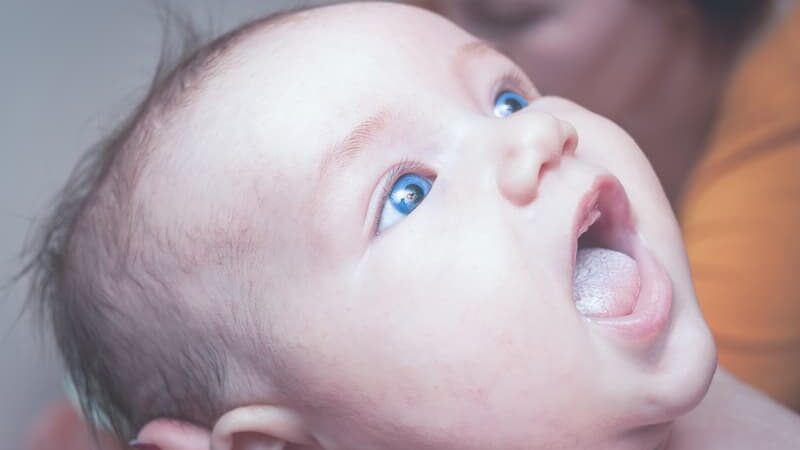How to Prevent Dry Mouth While Sleeping? The Ultimate Guide

How to prevent dry mouth while sleeping? Do you often awaken with an extremely dry mouth? Do you frequently experience interrupted sleep and wake up in search of water to quench your parched tongue and throat? Despite maintaining a good oral hygiene routine, it is still possible to have bad breath. Or perhaps a dry mouth is what’s ruining your evening.
While there are obvious symptoms of dry mouth or throat while sleeping, it is difficult to comprehend the causes of these conditions. The causes and symptoms of dry mouth, as well as some of the best ways to reduce and avoid nighttime dry mouth, are all covered in this article.
Table of Contents
How to Prevent Dry Mouth While Sleeping?
Making a few small adjustments to your daily routine can go a long way toward preventing dry mouth while you sleep.
- Drink water all day long and refrain from eating salty foods right before bed. Other problematic foods include those that are sugary, acidic, or spicy.
- Always keep a water bottle next to you while you sleep so that if you get thirsty or notice your mouth is dry, you can quickly sip some water rather than waking yourself up by getting up to get a glass of water from the kitchen.
- You should keep an eye on how much caffeine you consume each day. Avoid drinking caffeine after a certain time of day because it can make your dry mouth worse. See if drinking some decaf coffee makes a difference.
- To keep the air moist in your bedroom while you sleep, use a humidifier.
- Think about using your nose to breathe. This will require some effort and practice, but it will eventually become a habit.
- Your mouth may become dry if you use mouthwash with alcohol in it. Choose alcohol-free mouthwash instead, therefore.
- Dry mouth can also be a side effect of over-the-counter decongestants and antihistamines. Try to avoid them.
- Don’t smoke or chew tobacco.
- Suck on sugar-free candy or chew sugar-free gum
- Other aids include toothpaste for dry mouth and lozenges that stimulate saliva.
- Reduce or eliminate the use of alcohol
- Use a fluoride-containing toothpaste or rinse.
- Spray some moisturizer on your dry mouth.
- To clear a blocked nose and improve breathing, use nasal sprays.
- Consult your doctor or dentist and ask for alternatives to your current medications if you believe one of them is to blame for your nighttime dry mouth.
The Reasons for Dry Mouth
Dry mouth is quite a common condition, and it’s due to a lack of saliva production in your mouth. When you’re awake, you have some conscious control over salivation, so you can feel your mouth drying out and drink some water to stay hydrated. The worst signs of dry mouth, though, can occur while you’re asleep.
Of course, saliva is essential for maintaining the moisture in your mouth, but it also has other functions. Additionally, saliva balances the pH in your oral cavity, preventing it from becoming overly acidic. This aids in controlling the number of bacteria in the mouth. Saliva, however, provides the ideal environment for bacteria to grow, produce acidic waste, and cause tooth decay and other dental issues. Additionally, all of the soft tissues in the mouth that depend on saliva for hydration begin to dry out.
Do You Have Dry Mouth?
You can ask yourself a few questions to determine if you have dry mouth:
- Do you take more than two prescription drugs each day?
- Despite drinking water throughout the day, do you ever feel like your mouth is dry?
- Do you find yourself consuming food or liquids on a regular basis to prevent the discomfort of a dry mouth?
- Do you frequently feel dehydrated or thirsty at night?
- When you speak, does your mouth become dry?
If you answer yes to any or all of these questions, chances are you are suffering from dry mouth.

Symptoms of Dry Mouth While Sleeping
You might notice the following symptoms if you’re experiencing dry mouth at night:
- Bad breath in the morning that may last throughout the day
- Feeling very thirsty when you wake up
- Waking up frequently to get a drink of water during the night
- Dry, scratchy throat
- Difficulty taking a full breath
- Dry, cracked, or chapped lips
- A thick or sticky build-up of saliva in the mouth, especially on the tongue
It’s crucial to realize, however, that if your dry mouth only occurs while you sleep, another factor is probably at play. The soft tissues of the mouth can quickly become dry when you breathe through your mouth while you sleep. When you sleep, your natural breathing pattern should be through your nose, but anything from allergies to anatomical problems can cause you to breathe too much through your mouth.
What is Dry Mouth?
Dry mouth, also known as xerostomia, is a real medical condition. It is much simpler to pronounce than xerostomia. Your mouth’s salivary glands are affected, making it impossible for you to produce the saliva necessary to keep your mouth moist. A moist mouth is crucial because it neutralizes the acids that bacteria produce. By removing food debris, saliva reduces the amount of bacteria in the mouth and throat so that they can’t proliferate unchecked.
Why Do You Need Saliva?
Saliva improves taste, prevents tooth decay, and makes it easier to chew and swallow food, all of which contribute to improved digestion. It is more than merely bothersome when you don’t have enough saliva. It interferes with your ability to enjoy food, your appetite, and the condition of your teeth and gums.
Without enough saliva, the build-up of bacteria can lead to tooth decay, infections and tooth loss. In order to keep your breath fresh, saliva production is also necessary. Bad breath can result from bacteria and food particles that are stuck in your mouth.
Sleep-Related Dry Mouth
A dry mouth, dry sore throat, or both when you wake up are signs of sleep-related xerostomia. In actuality, having a thirst during the night is frequently a sign that you need to drink water.
About 23% of Canadians experience dry mouth as a result of sleep loss. Even though salivation increases when we are awake, it should still occur during sleep, albeit at a reduced rate. It is thought that a slowdown in salivation during sleep is connected to our circadian rhythm. Swallowing and salivary secretion involve rhythmic masticatory muscle activity that happens while we sleep. Saliva provides the lubricants required to safeguard both the health of your esophagus and the tissue in your mouth while you sleep.
Conclusion
Your symptoms can be markedly improved by implementing the suggestions we’ve provided above. However, you should speak with a skilled dental expert if you’re still having trouble preventing dry mouth while you sleep. They can suggest the most effective course of action and assist you in figuring out the cause.


![Silk & Snow Hybrid Mattress Review Should You Buy It Or Not [2022]](https://www.myspacebeds.com/wp-content/uploads/2022/11/Silk-Snow-Hybrid-Mattress-Review-Should-You-Buy-It-Or-Not-2022-520x293.jpg)
![Dr. Oz Good Life Mattress Reviews In 2022 [Updated]](https://www.myspacebeds.com/wp-content/uploads/2022/09/Dr.-Oz-Good-Life-Mattress-Reviews-In-2022-Updated-2.jpg)















